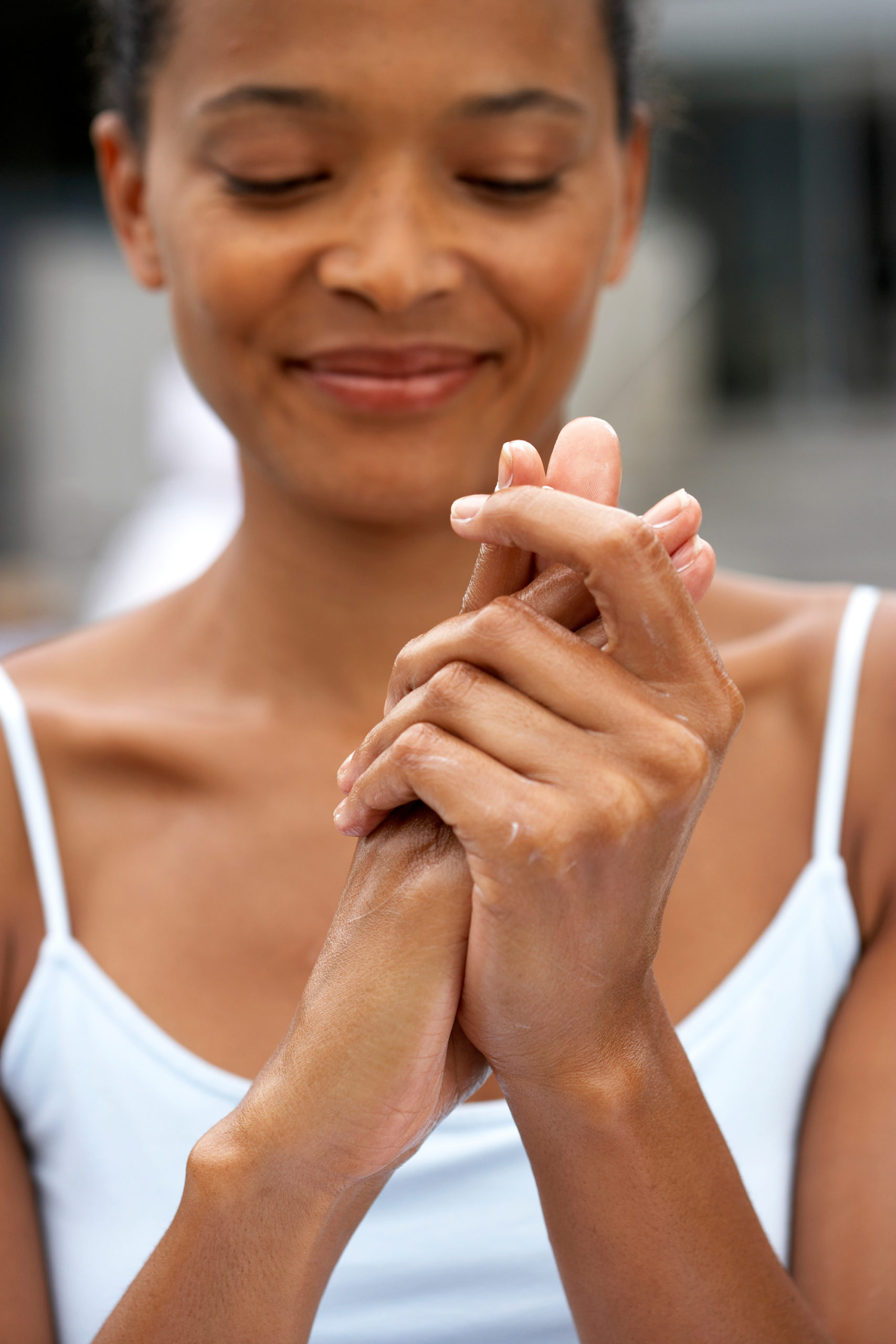 Most people have had a sunburn at some point in their lives. The medical term for it is radiation dermatitis, caused by UV radiation. The sun’s rays can damage skin cells and your body reacts, resulting in redness, dryness, itching, peeling, and even blistering. Radiation therapy affects your skin the same way in a specific targeted area.
Most people have had a sunburn at some point in their lives. The medical term for it is radiation dermatitis, caused by UV radiation. The sun’s rays can damage skin cells and your body reacts, resulting in redness, dryness, itching, peeling, and even blistering. Radiation therapy affects your skin the same way in a specific targeted area.
Everyone reacts to treatment in a different way.
Advanced radiation technologies are designed to help reduce the side effects of radiation therapy. But skin irritation is still common. You’re more likely to feel it where the skin is thin and smooth – your face or neck – or where you have folds: the breast, buttocks, abdomen, armpit or groin.
Reactions may be worse towards the end of treatment and up to a week or two after treatments are completed. They gradually subside a few weeks after your treatment ends. Increased risk factors for skin reactions include:
- Age
- Being overweight
- Poor nutrition
- Smoking
- Chronic diseases such as diabetes, or heart problems
- High dose or long duration of radiation therapy, or to large areas of your body.
- Having chemotherapy along with radiation
Get an early start with self-care.
Start on the day you begin radiation therapy and stay with it until treatment is over and your skin feels normal. Check skin daily and tell your MRO care team if your skin looks or feels different, or if you notice any sores or open areas. They can prescribe medications or recommend dressings to treat infection, reduce swelling or itching, or reduce pain.
1. Bathe your skin with love, using mild unperfumed soap and warm water. Splash soap and water gently over the treatment area. Don’t rub it, and don’t rub off the markings made by your MRO therapist; they mark where to place the radiation. Limit showers to one a day. Limit baths to twice a week. Gently pat your skin dry. Avoid shaving treated skin.
2. Moisturize, moisturize, moisturize, every day with the moisturizer that your MRO care team recommends. But don’t apply moisturizer to a wound directed by your care team.
3. Go fragrance-free. Perfumed makeup and skin care products can irritate your skin. Check the labels; even some unscented products contain fragrance. Your MRO care team may tell you to forego skin care products altogether before treatment.
4. Take care of hair. Radiation therapy generally does not cause thinning or hair loss, unless your head receives treatment. If you do have treatment to your head, comb or brush hair gently. Use a mild shampoo or baby shampoo and avoid excessive use of hair dryers, rollers, hairpins, and hairspray.
5. Eat well and stay hydrated. A healthy, well-balanced diet is important for healthy skin anytime. Drink plenty of fluids every day. Avoid alcohol and caffeine.
6. Wear loose-fitting clothes. Free yourself of tight collars, bras, girdles, pantyhose, and scratchy fabrics. Instead, try soft cotton clothes and bed sheets. Wash clothes in mild unscented detergents. If you receive radiation therapy to the breast, wear a sports bra or other soft bra to prevent chafing.
Being outside is a great stress-reliever.
Go for a walk or bike ride. Do some yard work. But protect your skin from harmful ultraviolet (UV) rays, heat, and cold. Anyone who’s had radiation treatment has a higher risk of skin cancer. It tends to show up years later, so sun protection is a lifelong commitment.
Use sunscreen with SPF 30 or higher and wear a hat and protective clothing; you can get a sunburn even on overcast days. When the Minnesota temperatures fall, bundle up. If you’re getting radiation treatments on your hands or lower arms, protect your skin with long sleeves and gloves while doing chores, such as doing dishes or gardening.
Finally, contact your MRO care team if:
- Your skin becomes very dry, flaky, itchy, or peels.
- Your skin stays wet, or you have open sores.
- You see pus or blood coming out of your skin.
- You have a fever.
- You have pain that doesn’t go away after you take your medicine.
For more information, visit:
https://mropa.com/what-to-expect/side-effects/
https://mropa.com/community/managing-radiation-side-effects-tips/


